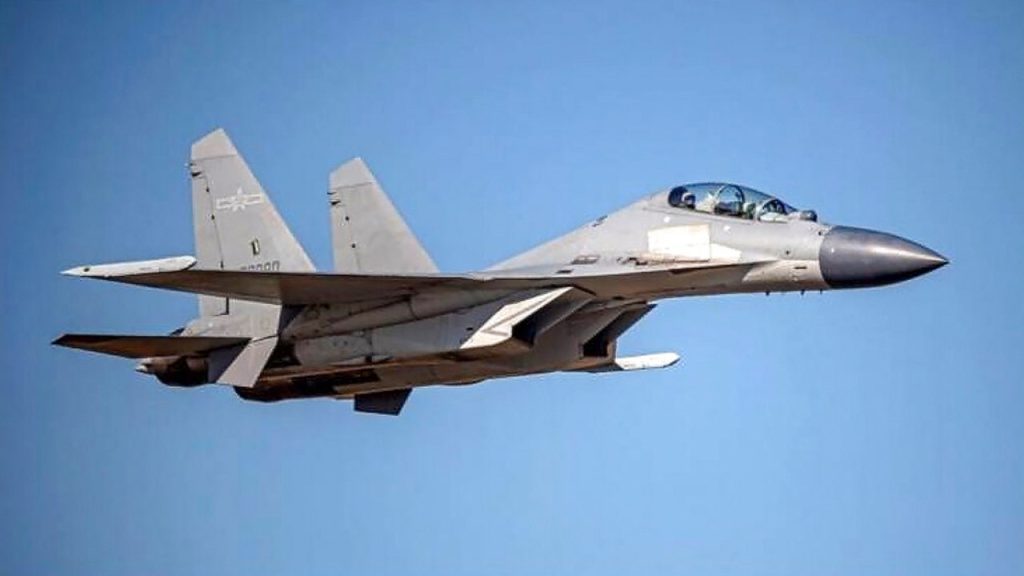Taiwan’s Defensive Resolve in the Face of China’s Growing Military Pressure
In an exclusive interview, Taiwan’s military spokesman Lt. Gen. Sun Li-fang has revealed details about the island nation’s strategic response to China’s increasingly aggressive military posturing in the western Pacific. China has been conducting training missions designed to limit U.S. and allied military access to the region, expanding what military strategists call “anti-access/area-denial” capabilities. These operations represent a systematic effort to restrict foreign forces from freely operating in areas Beijing considers within its sphere of influence. Taiwan’s armed forces, according to Sun, fully comprehend the threats posed by China’s expanding military might and have developed comprehensive plans to counter potential acts of aggression, including the possibility of a naval blockade that would have far-reaching consequences for global commerce and security.
Taiwan’s military remains vigilantly alert to the possibility that what China characterizes as “training” could rapidly transform into actual warfare. While some analysts express concerns that a Chinese naval blockade would be difficult to break, Sun confidently asserted that Taiwan has “holistic plans to breach any blockade.” The lieutenant general emphasized that Taipei would urge its allies and like-minded partners to treat any such blockade as an act of war warranting a coordinated international response. This position underscores Taiwan’s understanding that shipping disruptions in waters surrounding the island would significantly impact the global economy. By framing potential Chinese aggression as an international concern rather than merely a regional dispute, Taiwan is working to ensure that its security remains a priority for democratic nations worldwide who share an interest in maintaining stability in the Indo-Pacific.
Taiwan’s defense officials anticipate that the Chinese People’s Liberation Army will continue its campaign of “hybrid warfare” or “gray-zone operations” – strategic approaches that blend nonmilitary and paramilitary actions designed to pressure and harass Taiwan without formally declaring war. These tactics, according to Sun, are deliberately calculated to “exhaust Taiwan’s defense capability and blur the battlespace.” One prominent example is the near-daily incursions by Chinese warplanes into Taiwan’s air defense identification zone, which forces Taiwanese jets to scramble in response. Analysts recognize these provocations as part of a broader strategy to wear down Taiwan’s air force, degrade equipment, and exhaust personnel through constant pressure that falls just short of open conflict. This approach presents particular challenges for defenders, as it operates in the ambiguous space between peace and war.
Despite never having been governed by Beijing, Taiwan has firmly stated that it will not allow China to dictate the terms of any future conflict. Instead of attempting to match China’s conventional military might – a practical impossibility given the enormous disparity in size and resources – the island democracy is prioritizing the development of asymmetric warfare capabilities. Lt. Gen. Sun describes this approach as one in which “the weaker party strikes at the weak point of the stronger party with appropriate tactics and weapons in order to gain advantages on the battlefield and change the outcome of the war.” Taiwan’s defense priorities include building these asymmetric capabilities, strengthening operational resilience, expanding reserve force capacity, and improving defenses against gray-zone harassment. To achieve these objectives, Taiwan is expanding production and deployment of unmanned and AI-driven systems while dispersing command-and-control networks to complicate any attempt at a decisive strike. Additionally, Taiwan’s surveillance and reconnaissance units maintain vigilance and regularly exchange intelligence about PLA activities with allies and partners.
Sun emphatically rejected the notion that Taiwan lacks the will to defend itself, expressing confidence that the Taiwanese people would strongly resist any attempt by the People’s Republic of China to take the island by force. The military spokesman pointed to Taiwan’s proposed 2026 defense budget, which will exceed 3% of GDP, as concrete evidence of the government’s commitment to self-defense. This financial investment is accompanied by practical reforms aimed at making military training “as realistic as possible,” expanding reserve forces, and extending mandatory military service to one year. These measures reflect Taiwan’s determination to prepare its citizens for the possibility of conflict while simultaneously demonstrating to Beijing that any aggressive action would come at a significant cost. By making these investments in defense capability and readiness, Taiwan aims to create sufficient deterrence to prevent conflict from occurring in the first place.
Taiwan’s government is strategically emphasizing that any Chinese attack or blockade would constitute not merely a local confrontation but a global crisis with far-reaching implications. Government and military leaders of democratic Taiwan are working diligently to convince both China and the international community that Taiwan possesses both the capability and determination to defend itself against aggression. This messaging serves multiple purposes: it seeks to deter Chinese adventurism by raising the potential costs of conflict, reassure allies that Taiwan is a defense partner worth supporting, and remind the world that Taiwan’s security is intertwined with regional stability and global prosperity. As tensions across the Taiwan Strait remain high, the island’s approach combines military preparation with diplomatic outreach, creating a comprehensive strategy to preserve its democratic way of life in the face of mounting pressure from its authoritarian neighbor.














